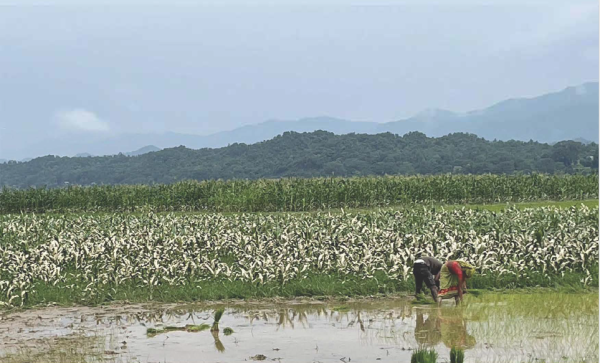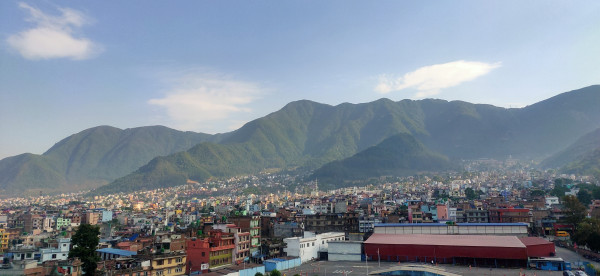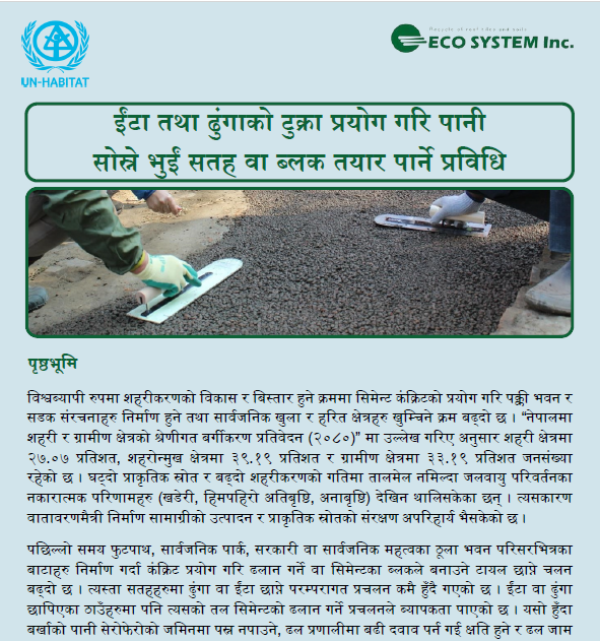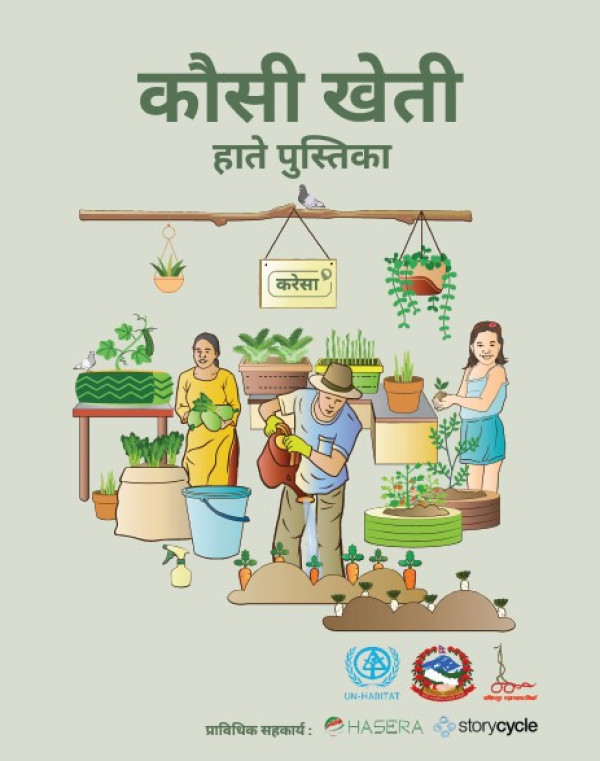Technical Session on Inclusive & Green Urban Spaces
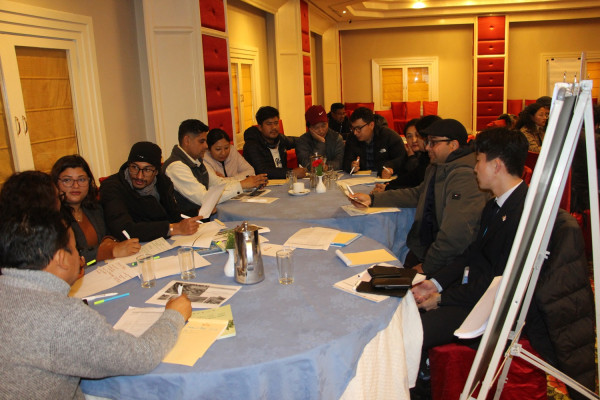
22 January 2024, Lalitpur, Nepal – Lalitpur Metropolitan City in collaboration with UN-Habitat, with support from Government of Japan, organized a half-day Technical Session on ‘Green and Inclusive Urban Spaces’ on 19 January 2024, in Lalitpur. The event served as a platform for learning and sharing of knowledge, skill and experience between participants representing Ministry of Urban Development (MOUD), Lalitpur Metropolitan City, Kathmandu Valley Development Authority (KVDA), various municipalities within Kathmandu valley, students, academia, professional societies (RUPSON, SONA), NGOs, and community-based organizations, development partners, Embassy of Japan, Ministry of Economy, Trade and Industry (METI), ECOSYSTEM Inc., and UN-Habitat Regional Office for the Asia & Pacific (ROAP). It was preceded by demonstration of an innovative green technology as permeable pavement for public and pedestrian spaces by utilizing recycled bricks and construction wastes. These efforts align with the broader mission to foster green and inclusive urban growth, building on a longstanding collaboration with Lalitpur.
Setting the agenda, Ms. Pragya Pradhan, Habitat Program Manager, UN-Habitat Nepal, explained need for prioritizing investments on social infrastructure and public amenities that are green, inclusive serve multiple benefits in making our cities vibrant and alive. It was followed by remarks from Ms. Kanako Toga, METI, explaining the Climate Change Adaptation Good Practices promoted by METI in collaboration with UN-Habitat and stakeholders.
The technical session with presentations highlighted various green and inclusive approaches for addressing urban issues. Mr. Safal Shrestha, District Commissioner, KVDA – Lalitpur made the participants delve into the application of Urban Ecosystem-Based Adaptation for climate resilient development in Kathmandu Valley and the ongoing project. He stressed on the need to view, “EbA as a trajectory rather than a one-off intervention”, along with need to focus on planning and policy reforms to encourage environment responsive development.
Mr. Minoru Takata, ECOSYSTEM Inc. presented on ‘Permeable Pavement for Ground Water Recharge’, sharing detailed technical information on the innovative technology, its application and the outcomes, drawing from its application and piloting in various countries including Vietnam and Lalitpur, Nepal.
Mr. Saurav Dhakal, Co-Founder, Story Cycle, delivered an insightful presentation on ‘Promoting Urban Greenery’. He emphasized the need of informed decision making, for context suitable plantation in urban areas, the need for people-centric design, sustainable food and market system, and highlighted solutions in the form of ‘The Plantation Toolkit’ and ‘Karesa- Urban Agriculture’.
Ms. Neeharika Mathema, Initiator, Placemaking Nepal presented on “Place Making: For Livable Cities”. She emphasized the distinction between livable and lovable cities underscoring the role that urban designing can play in developing community socialization spaces. Her presentation drew from their success in Hadigaun developing spaces for community interaction in an on-going initiative.
Ms. Shristina Shrestha, Architect/Urban Planner, Lumanti Support Group for Shelter delivered a presentation on ‘Inclusion in Urban Planning’. She explained the ‘how’ part of community participation process, and with examples of tools and methodologies used to ensure meaningful participation that yielded results and visible impacts translated into urban infrastructure and public space revitalization.
Presentations were followed by an engaging question-and-answer session where the participants posed insightful questions, further enriching the discussions.
After listening to the experts, the participants were divided into three groups to engage in a brainstorming session wherein each group undertook live projects of/in Kathmandu Valley. Facilitated by presenters as resource persons, the groups analyzed the projects, their relative strengths, weaknesses and applicable solutions. The session was facilitated by Ms. Renuka Bhandari, Architect, MOUD. The brainstorming session was followed by presentations from the groups, sharing their assessment of the spaces, design solution and suggestions for green and inclusive re-development.
The Chief Guest, Ms. Manjali Shakya Bajracharya, Deputy Mayor, Lalitpur Metropolitan City, acknowledged the valuable insights from the presenters and participants, expressing her appreciation of the various innovative solutions and issues of concern raised through the session. Ms. Shakya highlighted the need to guide development that is environmentally sensitive, for humans and equally responsible to preserving bio-diversity and providing livable cities for future generations.
Ms. Sachiyo Hoshino, Senior Advisor, ROAP thanked the participants for active engagement and Lalitpur for continued collaboration, as a follow-up of the Expert Groups Meeting held in Fukuoka in September 2023. She expressed possibilities of broadening collaboration and brining in relevant green solutions to Nepal, with continued support from the stakeholders.
Mr. Suman Salike, Under Secretary (SDE), MOUD, highlighted the possibilities through right investments, incentives and innovations to promote green and inclusive urban development, drawing examples from Regional Urban Development Project.
Mr. Takahiro Tamura, Deputy Chief of Mission, Embassy of Japan highlighted the value of the brainstorming session, in facilitating fruitful discussions and brining young minds together to derive solutions. He further highlighted partnership between Government of Japan and Nepal in technology and knowledge transfer and the commitment for continued collaboration in future.
